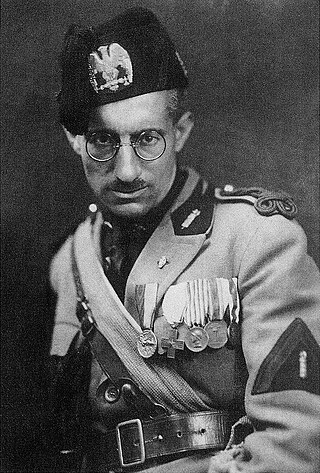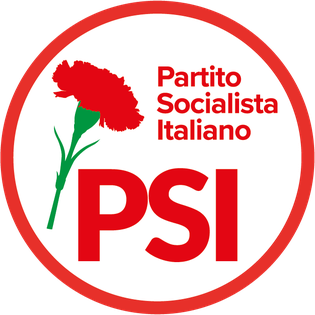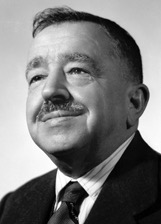Related Research Articles

The Italian Communist Party was a communist and democratic socialist political party in Italy. It was founded in Livorno as the Communist Party of Italy on 21 January 1921, when it seceded from the Italian Socialist Party (PSI), under the leadership of Amadeo Bordiga, Antonio Gramsci, and Nicola Bombacci. Outlawed during the Italian fascist regime, the party continued to operate underground and played a major role in the Italian resistance movement. The party's peaceful and national road to socialism, or the "Italian Road to Socialism", the realisation of the communist project through democracy, repudiating the use of violence and applying the Constitution of Italy in all its parts, a strategy inaugurated under Palmiro Togliatti but that some date back to Gramsci, would become the leitmotiv of the party's history.

Michele Bianchi was an Italian revolutionary syndicalist leader who took a position in the Unione Italiana del Lavoro (UIL). He was among the founding members of the Fascist movement. He was widely seen as the dominant leader of the leftist, syndicalist wing of the National Fascist Party. He took an active role in the "interventionist left" where he "espoused an alliance between nationalism and syndicalism." He was one of the most influential politicians of the regime before his succumbing to tuberculosis in 1930. He was also one of the grand architects behind the "Great List" which secured the parliamentary majority in favor of the fascists.

The New Italian Socialist Party or New PSI, more recently styled as Liberal Socialists – NPSI, is a political party in Italy which professes a social-democratic ideology and claims to be the successor to the historical Italian Socialist Party, which was disbanded after the judiciary tempest of the early 1990s.

The Italian Democratic Socialists were a social-democratic political party in Italy. The party was the direct continuation of the Italian Socialists, the legal successor of the historical Italian Socialist Party. The Italian Democratic Socialist Party, the other long-time Italian social-democratic party, was merged into it along with other minor parties. The party's long-time leader was Enrico Boselli, a former president of Emilia-Romagna (1990–1993). In 2007, the SDI were merged with other descendants of the PSI to form the modern-day Italian Socialist Party.

Young European Socialists (YES), formerly the European Community Organisation of Socialist Youth (ECOSY), is an association of social democratic youth organisations in Europe and the European Union.

The Italian Socialist Party was a social-democratic and democratic-socialist political party in Italy, whose history stretched for longer than a century, making it one of the longest-living parties of the country. Founded in Genoa in 1892, the PSI was from the beginning a big tent of Italy's political left and socialism, ranging from the revolutionary socialism of Andrea Costa to the Marxist-inspired reformist socialism of Filippo Turati and the anarchism of Anna Kuliscioff. Under Turati's leadership, the party was a frequent ally of the Italian Republican Party and the Italian Radical Party at the parliamentary level, while lately entering in dialogue with the remnants of the Historical Left and the Liberal Union during Giovanni Giolitti's governments to ensure representation for the labour movement and the working class. In the 1900s and 1910s, the PSI achieved significant electoral success, becoming Italy's first party in 1919 and during the country's Biennio Rosso in 1921, when it was victim of violent paramilitary activities from the far right, and was not able to move the country in the revolutionary direction it wanted.

Giuseppe Di Vittorio, also known as Nicoletti, was an Italian trade union leader and Communist politician. He was one of the most influential trade union leaders of the labour movement after World War I.

The Italian Socialists were a minor social-democratic political party in Italy active from 1994 to 1998. The party was the legal successor of the Italian Socialist Party (PSI), following its dissolution by the 47th Party Congress due to the severe financial crisis following the Tangentopoli scandal. A minoritarian group of the congress, who proposed an autonomist and centrist solution against the PSI dissolution, instead founded the Reformist Socialist Party.

The Italian Labour Union is a national trade union centre in Italy. It was founded in 1950 as a socialist, social democratic, republican, and laic split from the Italian General Confederation of Labour (CGIL). It represents almost 2.2 million workers.
The Socialist Party was a tiny social-democratic political party in Italy.

The Italian Socialist Party is a social-democratic political party in Italy. The party was founded in 2007–2008 by the merger of the following social-democratic parties and groups: Enrico Boselli's Italian Democratic Socialists, the faction of the New Italian Socialist Party led by Gianni De Michelis, The Italian Socialists of Bobo Craxi, Democracy and Socialism of Gavino Angius, the Association for the Rose in the Fist of Lanfranco Turci, Socialism is Freedom of Rino Formica and some other minor organisations. Until October 2009, the party was known as Socialist Party.

The Young Democrats is the youth wing of the Democratic Party (PD) of Italy. The organisation is an affiliate of the Young European Socialists and International Union of Socialist Youth.
The Liberal Socialist Movement, called until 18 December 1994 the Federation of Socialists, was a social-democratic political party in Italy.

The World Federation of Democratic Youth (WFDY) is an international youth organization, and has historically characterized itself as left-wing and anti-imperialist. WFDY was founded in London, United Kingdom in 1945 as a broad international youth movement, organized in the context of the end of World War II with the aim of uniting youth from the Allies behind an anti-fascist platform that was broadly pro-peace, anti-nuclear war, expressing friendship between youth of the capitalist and socialist nations. The WFDY Headquarters are in Budapest, Hungary. The main event of WFDY is the World Festival of Youth and Students. The last festival was held in Sochi, Russia, in October 2017. It was one of the first organizations granted general consultative status with the United Nations Economic and Social Council.

Ivan Matteo Lombardo was an Italian politician.
Socialists and Democrats is a social-democratic faction of the Democratic Party (PD), a centre-left political party in Italy.

Giuseppe Romita was an Italian socialist politician. In his life he served several times as a cabinet minister and member of the Parliament.

The Maximalist Italian Socialist Party or PSIm, was the residual part of the Italian Socialist Party in exile following the split that occurred during the first phases of the Socialist Convention of Grenoble, held on 16 March 1930, by Pietro Nenni and the fusionist fraction.
References
- ↑ Politica, la perugina Claudia Bastianelli nuova segretaria nazionale dei Giovani Socialisti
- ↑ Psi, Sajeva nuovo segretario della Federazione giovani socialisti
- ↑ Yes SummerCamp 2016 a Terrasini, dal 20 al 23 luglio 2016 „Terrasini, a Città del Mare prende vita lo "Yes SummerCamp 2016"“
- ↑ La rinascita riparte dai Giovani Socialisti
- ↑ Accordo PSI/+Europa: la posizione della FGS